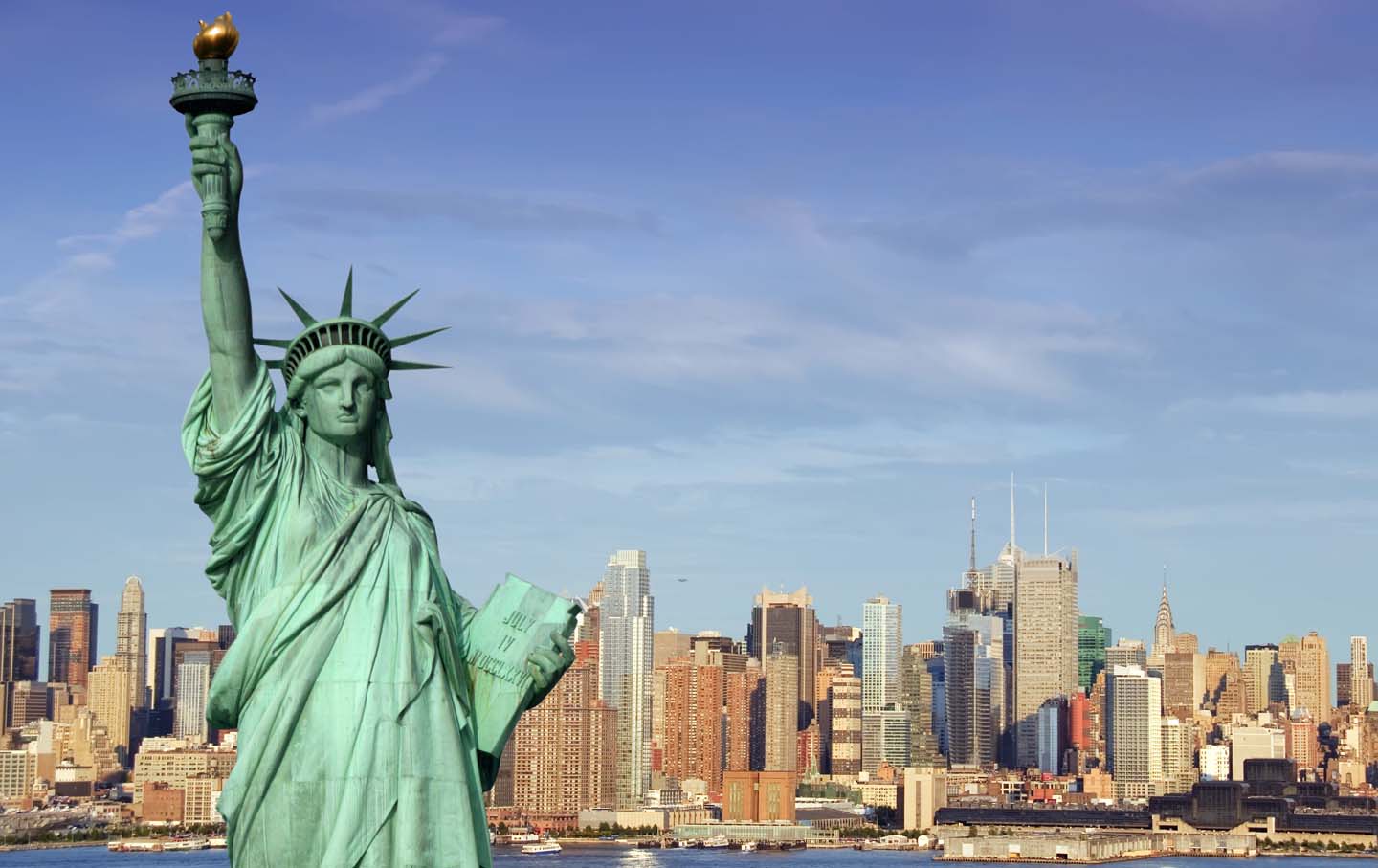Only the Dead Know Brooklyn Only the Dead Know Brooklyn
For more than a century, a recognizable pattern existed among those migrating to New York City: They came first either through Ellis Island or up from the American South, and m...
May 16, 2002 / Books & the Arts / Theodore Hamm
Futbol Futbol
As if to move a flexible sphere from here to there with unassisted head and foot were natural and obvious. As if a dance could always bow to resolute constraint and never be dance...
May 16, 2002 / Books & the Arts / Alfred Corn

Patriotism’s Secret History Patriotism’s Secret History
Our most cherished national symbols—from the Pledge of Allegiance to "America the Beautiful" to Lady Liberty's poetry—are rooted in liberal ideals.
May 16, 2002 / Peter Dreier and Dick Flacks
Milosevic, Still at War Milosevic, Still at War
It is probably safe to say that the war crimes trial in The Hague of the former Serbian dictator Slobodan Milosevic is not going well. At least so far. No credible witnesses ha...
May 9, 2002 / Books & the Arts / Dusko Doder
Judging the Tribunals Judging the Tribunals
After years of collecting evidence against Slobodan Milosevic, the prosecutors at The Hague expected a decisive victory. But as the former Yugoslav president, who insisted on d...
May 9, 2002 / Books & the Arts / Daphne Eviatar
What Are They Reading? What Are They Reading?
Love's Labour's Lost by William Shakespeare I have been on something of a Shakespeare comedy jag over the past months; I laughed all the way from Columbus, Ohio, to New York...
May 6, 2002 / Books & the Arts / Arthur C. Danto
The Great Societizer The Great Societizer
Reading Robert Caro to learn about Lyndon Johnson is like going to an elaborate buffet in order to get the four basic food groups; they both give you what you need along with much...
May 2, 2002 / Books & the Arts / Philip A. Klinkner
Melville at Sea Melville at Sea
In 1851, when the 32-year-old Herman Melville published his masterpiece Moby-Dick, he was already known as a man who'd consorted with cannibals. His first book, Typee: A Peep at P...
May 2, 2002 / Books & the Arts / Brenda Wineapple
Gayness Becomes You Gayness Becomes You
Nearly fifty years ago, in Eros and Civilization, Herbert Marcuse suggested that homosexuals (then the current term) might someday--because of their "rebellion against the subjuga...
May 2, 2002 / Books & the Arts / Martin Duberman
Militants on the Steppes Militants on the Steppes
It was an early November morning when I met Gairam Muminov on the steps of a courthouse on the outskirts of Tashkent, the sprawling capital of Uzbekistan. He was leaning against a...
May 2, 2002 / Books & the Arts / Raffi Khatchadourian
